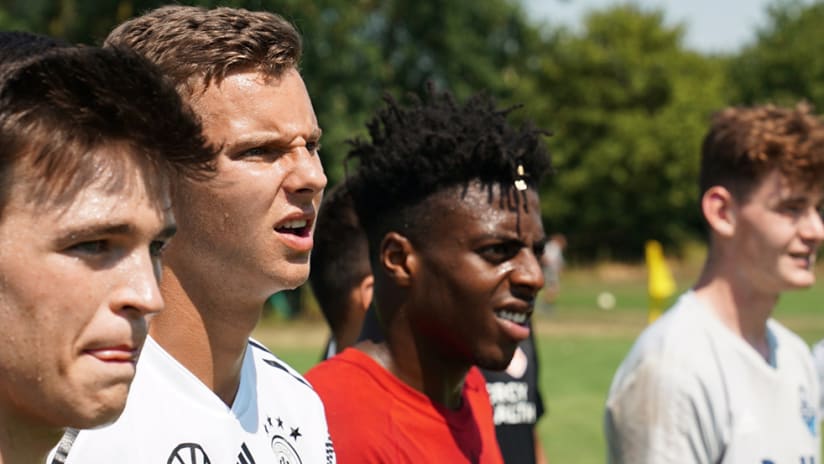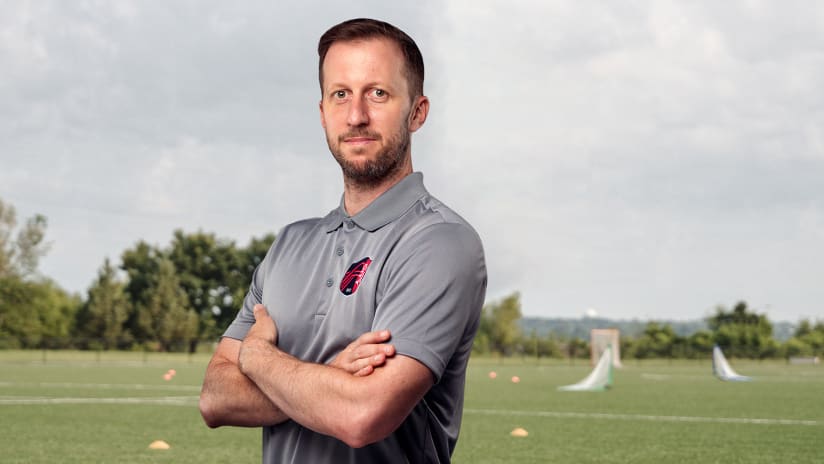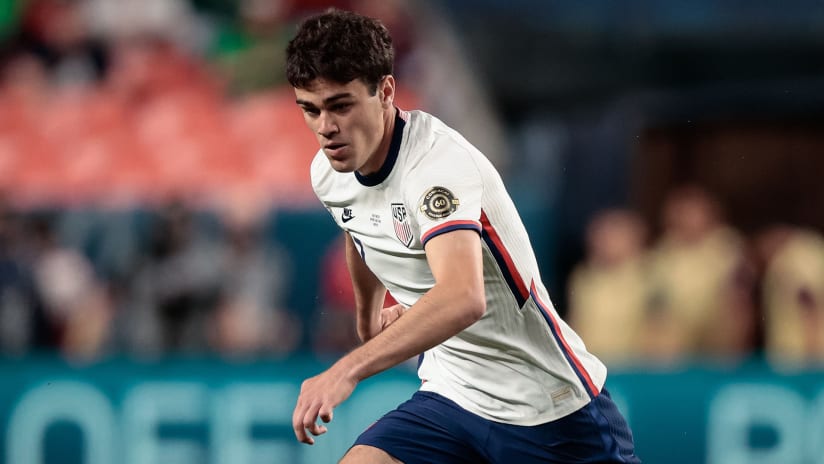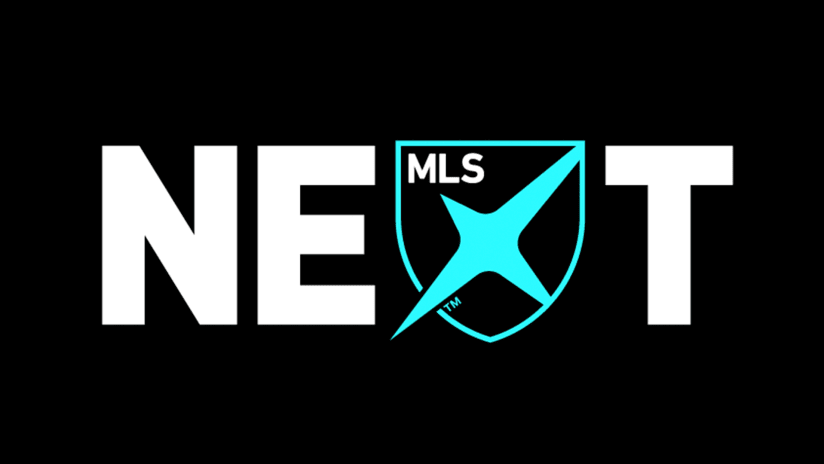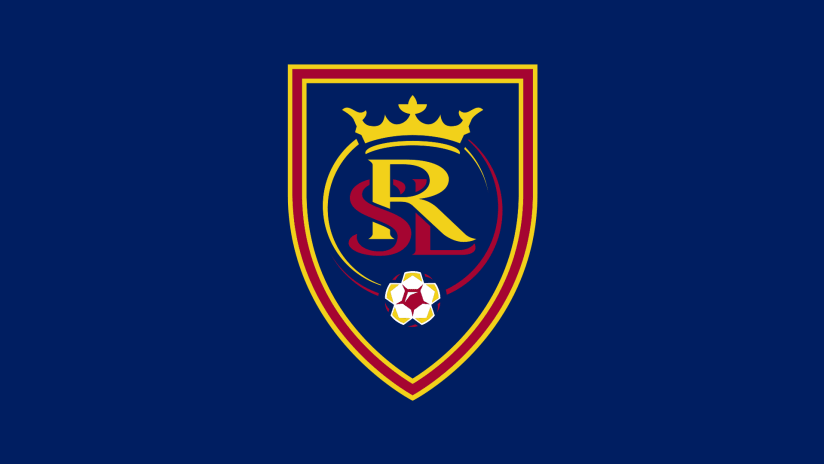MLSsoccer.com's Bobby Warshaw traveled with MLS academy goalkeepers and academy goalkeeper coaches last July as MLS and the German Football Association began a series of immersive development courses implemented over a 12-month period. Here's what he saw, heard and witnessed.
A tall, middle-aged man in soccer gear and a cap stands at the front of the room and shows a clip of a goal on the projector screen.
When the replay finishes, the man turns to the room. He asks the teenagers in the chairs in front of him to break into groups of four. The kids go into separate corners of the room and watch the video a few more times on a laptop, taking notes on a big easel notepad. Fifteen minutes later, the larger group reassembles.
“Okay, what do you think?” the instructor at the front of the room asks.
There’s a pause. The kids look around at each other. The coaches opposite the aisle play with their pens. A young man with long, curly hair speaks up first: “The goalkeeper didn’t get his feet set.” His tone reflects a mix of nerves and pride.
The instructor offers an elongated nod before responding, “Okay, why?”
“Because he was still getting into position.”
“Okay, what happened?”
“He took the wrong angle.”
“Okay, how?”
“He should have been closer to his line.”
Other players, aged 14-17, have started to contribute now. There are eight goalkeepers in total in this room, one of three meeting rooms with similar numbers.
“Okay, why?” the instructor asks once more.
“He needs to give himself more time to react.”
“Okay, but what if he had done that, what would the striker have done in response?”
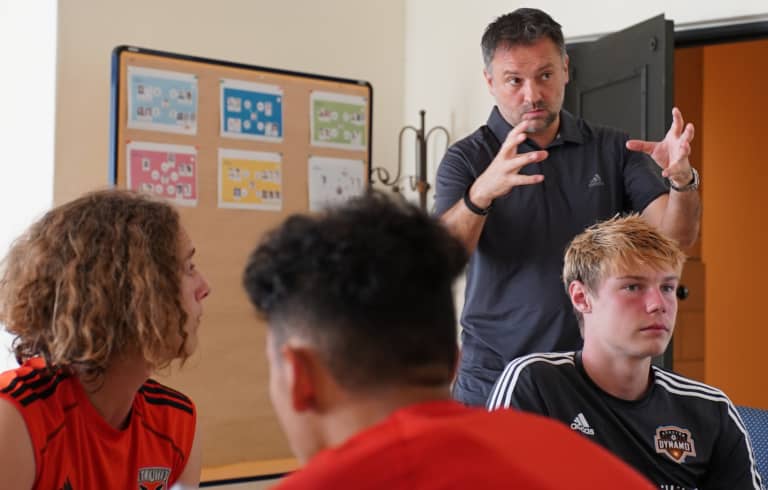
MLS VP of Player Youth and Development Fred Lipka speaks to the classroom | Marcus Tracy
The back-and-forth continues until the instructor is satisfied. They have not come to a conclusion. Rather, the kids have attacked and answered the question from all angles.
It feels like a philosophy course, a series of “Why? Tell me more!” questions until every detail has been deconstructed.
It’s standard procedure at the small resort outside Munich, the base of a collaboration between MLS and the German Football Association (DFB).
It’s the latest step in the initiative from Major League Soccer and adidas to continue to improve the quality of coaching and the level of play within the academies. Twenty-one academy goalkeeper coaches, as well as two other invitees, were joined by 27 academy 'keepers for a four-day course with Germany’s group of national team coaches in July.
Fred Lipka, VP of Player Youth and Development at MLS and architect of the continued education plan for academy coaches, explains: “We want to build a culture in our academies. We want them to have environments that are committed to growth and learning. So we provide these opportunities to help put them in positions to grow.”
Lipka sought out the German federation because of their track record for producing goalkeepers — Manuel Neuer, Marc-Andre ter Stegen and Bernd Leno to name a few.
In conjunction with the classroom sessions, the players and coaches took part in two sessions on the field per day. They split into six groups, four to five coaches paired with the player from their club, each led by a German instructor; every German instructor has the top goalkeeper license given in Europe and is part of the national team setup.
The session following the classroom analysis… positioning in relation to the depth to the goal line, obviously.
If you’ve never been around a goalkeeper training session, there’s a special quality to the drills. The goalkeeping position has the most detailed technique. A striker misses a shot and coaches shout “stay over it” or “get your balance right.” A goalkeeper misses a save, though, and the coach shouts, “you took an extra step and you were a yard too forward and your hands weren’t in the right position.” Every aspect of a goalkeeper’s decision and technique can get critiqued. Every action, every step, every inch matters. As a result, every training drill has a purpose.
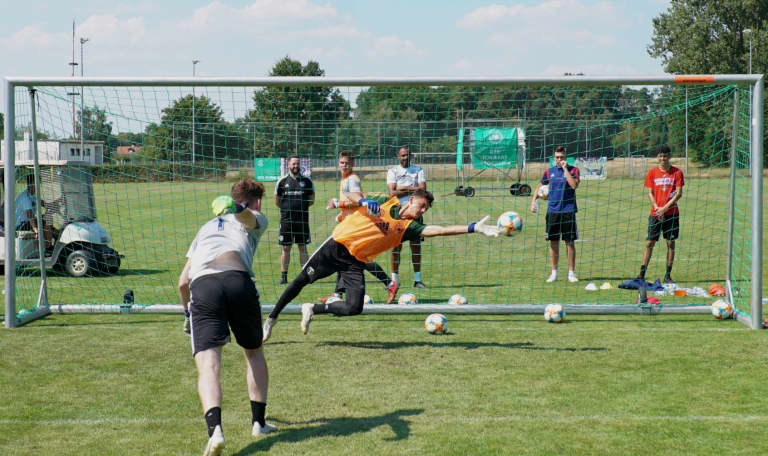
MLS academy goalkeepers in action | Marcus Tracy
The DFB has assigned this small group of elite coaches to become the best in the world at those drills.
One recent innovation stood out. The German federation has implemented brain activation drills into their methodology. Before every session, the players go through specific drills designed to warm up the mind. With those drills, they also aim to improve brain function, specifically in the corpus callosum’s ability to connect the two sides of the brain (bet you didn’t think you’d get a science lesson when you opened this story).
The more that the creative side can talk to the logical side, the better the decisions and reactions will be. If soccer, and especially goalkeeping, is about decisions, then players need to be working on the muscle that makes them.
The week in Germany is only the launching pad for the MLS personnel. The coaches now have a professional network (and group chat) among themselves that didn’t exist before. They have ideas to test and iterate, and new sounding boards for along the way. The players have fresh feedback from new coaches, and a clear picture of the competition. They have technique to perfect and new friends to better.
There’s a clear mix of collaboration yet competition within everyone at the camp. Everyone’s working to get better. Everyone wants to create the next great American or Canadian ‘keeper. It’s coming. Everyone just wants to make sure it’s them.

